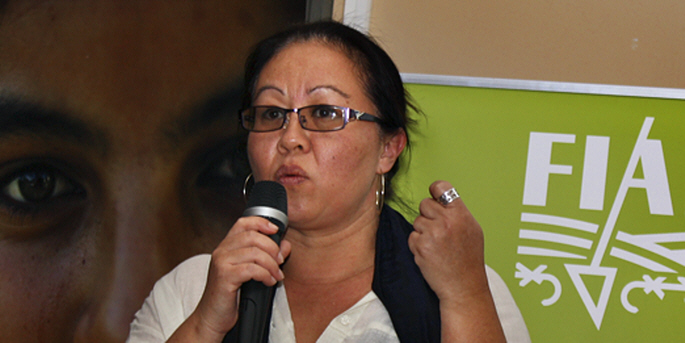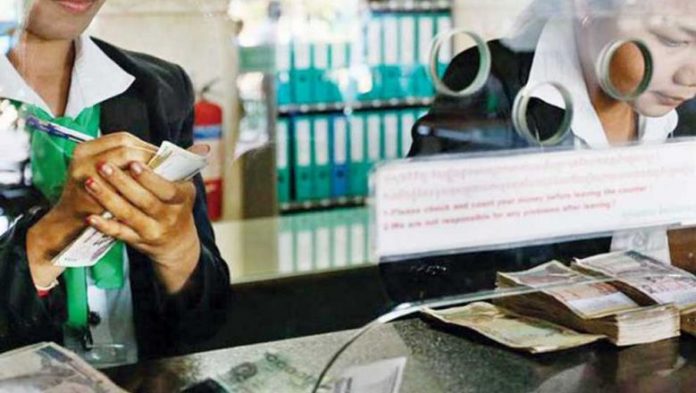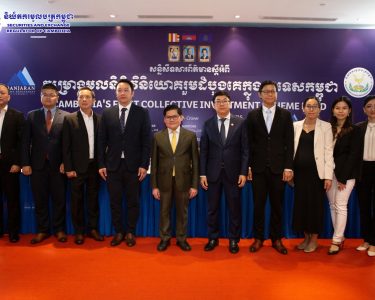Harrison White
Cambodia’s leading financial associations have responded to a formal complaint made by two civil society organizations to the Compliance Advisor Ombudsman (CAO) of the International Finance Corporation alleging the World Bank member has failed to meet its own performance standards.
The IFC Performance Standards are a framework for understanding and managing environmental and social risks for high profile, complex, international or potentially high impact projects.
If non-compliances are identified financial institutions are required to develop a corrective action plan for addressing the issue within a reasonable timeframe.
Complaint taken seriously
The Association of Banks in Cambodia (ABC) and Cambodia Microfinance Association (CMA) released a joint statement explaining they are aware of the recent complaint and were taking the allegations seriously.
The complaint made by Equitable Cambodia and the Cambodian League for the Promotion and Defense of Human Rights (LICADHO) alleged the IFC failed in its obligation to conduct due diligence and supervise projects to ensure compliance with performance standards.
“As a result, grave harms resulted from IFC loans and investments in six microfinance institutions and microloan-providing banks in Cambodia including ACLEDA, Hattha Bank, Sathapana, Amret, LOLC, and Prasac who together hold about 75% of the country’s microloans,” the complaint read.

“These six institutions combined have received approval for more than $400 million in IFC funding over the last five years, including direct loans, syndicated loans, equity investments, and loans from IFC-backed funds,” they added.
The Compliance Advisor Ombudsman of the International Finance Corporation has accepted the complaint and is currently under review.
Eang Vuthy, executive director of Equitable Cambodia said: “They [the CAO IFC] must take immediate steps to independently investigate these abuses, provide appropriate remedies to victims harmed by their reckless investments, dramatically strengthen consumer protection, and set up effective monitoring systems to avoid future harms caused by investments.”
Isolated cases do exist
In a publicly released statement Naly Pilorge, outreach director of LICADHO said: “These complainants are taking a risk to share their experiences in order to expose the harms and abuses perpetrated by MFIs and banks in Cambodia.”
“The IFC’s reckless investments and lack of due diligence regarding its microfinance projects have destroyed lives and wrecked communities across Cambodia, and they must take steps to offer real relief to these borrowers,” she added.
LICADHO has released several negative studies previously claiming ‘predatory lending’ by Cambodia’s Microfinance sector which has drawn mixed responses from the industry with some stating the survey’s undertaken are highly selective with small sample sizes as well as unclear definitions between informal and formal lending.

The joint statement did acknowledge that isolated cases of misconduct or breach could always happen.
“We welcome constructive criticism and are calling for all interested parties to bring to our notice any such cases, and where materialized, disciplinary measures will be taken with fairness, diligence and independence. We will take the perspectives of our clients into consideration,” the joint statement read.
Cambodia’s financial institutions have put client protection at core
The joint statement also outlined that customer and client Protection is one of the core agenda items of all financial institutions, that have been engaging in the National Financial Inclusion Strategy (NFIS) 2019-2025 adding Actions have been taken to ensure the respect of Client Protection Principles.
“Various financial literacy activities have been carried out such as access to formal financing, saving money campaigns, media training, financial education comic books, short educational videos competition, monthly talk shows, provincial workshops,” it said.

Cambodia’s finance industry has launched the ‘Banking and Financial Institutions Code of Conduct’ with plans to award institutions with ethical certifications aiming to increase the current level of trust and accountability of its members.
The three associations that launched the code included the CMA, ABC and the Cambodia Association of Finance and Technology is in line with the Financial Sector Development Strategy 2016-2025 and the National Financial Inclusion Strategy 2019-2025.
To read more about the code click here.
The Code sets minimum standards, inspired by international good practices, to be observed by all members, with the objectives to provide financial services with transparency, responsibility, professional ethics, fair and free competition — aiming for the banking system to grow strongly and inclusively, and for the economy to grow sustainably, therefore, contributing to the reduction of national poverty.
In addition, mandatory Responsible Lending Certification Programmes have been introduced, which require all lending officers from Banks/FIs to take and be certified by a separate institute.
During the COVID pandemic, financial institutions have helped provided loan restructurings to 627,524 accounts with a total portfolio amounting to $7.38 billion as of March 2022.





